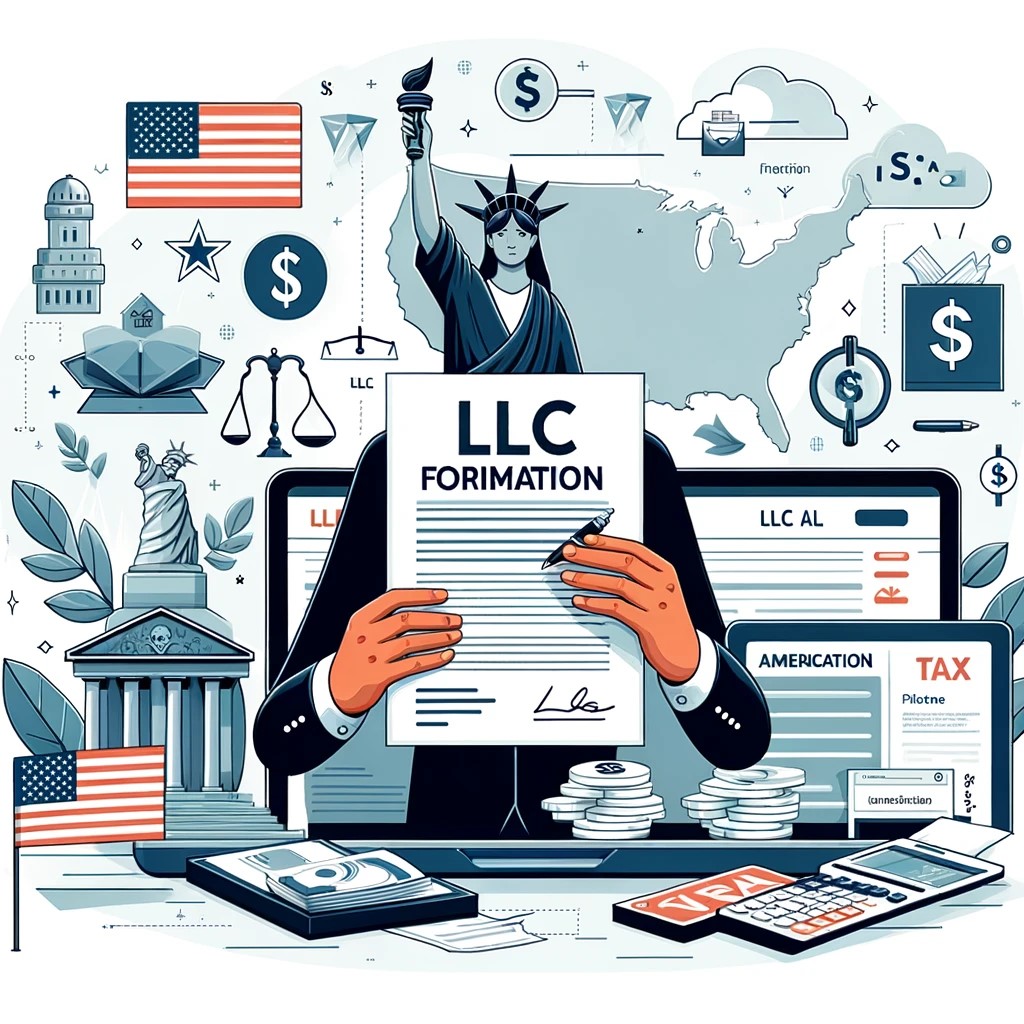

Effective Tax Planning: Key Strategies to Reduce Your Tax Bill
What is Tax Planning in Simple Terms?
Tax planning is the process of analyzing your financial situation to ensure that all elements work together to allow you to pay the lowest taxes possible. It involves looking at various tax deductions, tax credits, and other strategies to reduce your taxable income. Essentially, it’s about legally minimizing your tax liability.
Is Tax Planning Worth It?
Yes, tax planning is worth it. Effective tax planning can save you a significant amount of money by reducing your overall tax bill. It helps you to take advantage of tax deductions, tax credits, and other benefits that you might otherwise miss. This means more money in your pocket and better financial health.
What is Tax Planning vs Tax Preparation?
Tax planning and tax preparation are two different processes. Tax planning involves strategizing to minimize tax liability throughout the year, while tax preparation is the process of gathering the necessary documents and filing your tax return. While tax preparation is a once-a-year task, tax planning is an ongoing process.
What is the Goal of Tax Planning?
The primary goal of tax planning is to minimize taxes. This is achieved through various strategies such as income deferral, maximizing deductions, and taking advantage of tax credits. The aim is to ensure you pay the lowest amount of taxes legally possible.
What Are the Three Basic Strategies for Planning Taxes?
-
Income Shifting: Moving income from high-tax brackets to lower ones.
-
Income Deferral: Postponing income to a future year to reduce current tax liability.
-
Tax-Exempt Investments: Investing in vehicles that do not attract tax.
What is Effective Tax Planning?
Effective tax planning involves using all available strategies to reduce your tax liability. It requires an understanding of tax laws and the foresight to anticipate how different financial decisions will impact your taxes. Consulting with a tax professional can greatly enhance the effectiveness of your tax planning efforts.
How Can I Reduce My Taxable Income?
There are several ways to reduce your taxable income:
-
Maximize Contributions to Retirement Accounts: Contribute to a 401(k), a traditional IRA, or other retirement accounts to reduce your taxable income.
-
Take Advantage of Tax Credits: Use tax credits such as the Earned Income Tax Credit (EITC) and Child Tax Credit.
-
Claim All Deductions: Itemize deductions if they exceed the standard deduction.
What is the Timing Strategy for Tax Planning?
The timing strategy for tax planning involves deferring income and accelerating deductions. This means postponing income to a future tax year while accelerating deductible expenses into the current year to reduce the current year's tax liability.
What Does Tax Planning Mean?
Tax planning means organizing your finances in a way that minimizes your tax liability. It includes taking advantage of deductions, credits, and other tax benefits to reduce the amount of tax you owe.
How Much Should I Expect to Pay for Tax Planning?
The cost of tax planning services can vary widely depending on the complexity of your financial situation. However, the savings from effective tax planning often outweigh the costs, making it a worthwhile investment.
Why Should You Plan for Taxes?
Planning for taxes helps you to minimize your tax liability, ensure compliance with tax laws, and avoid surprises at tax time. It also allows you to take full advantage of tax-saving opportunities.
What is a Tax Planning Approach?
A tax planning approach involves understanding your financial situation, identifying tax-saving opportunities, and implementing strategies to minimize your tax liability. This approach can include deferring income, maximizing deductions, and taking advantage of tax credits.
Why Would Planning a Tax Strategy be a Good Idea?
Planning a tax strategy is a good idea because it helps you to reduce your tax liability, ensure compliance with tax laws, and achieve your financial goals. A well-planned tax strategy can save you money and provide peace of mind.
What Are Tax Planning Strategies Commonly Used For?
Tax planning strategies are commonly used to:
-
Reduce Taxable Income: Through deductions and credits.
-
Defer Taxes: By postponing income.
-
Minimize Tax Rates: By shifting income to lower tax brackets.
What is Tax Planning Arrangements?
Tax planning arrangements involve setting up your financial affairs in a way that minimizes tax liability. This can include establishing retirement accounts, structuring investments, and organizing your business operations to take advantage of tax benefits.
Detailed Tax Planning Strategies
Single Filers Whose Income
Single filers whose income is higher than certain thresholds can benefit significantly from tax planning strategies such as tax gain-loss harvesting, using health savings accounts, and maximizing retirement contributions.
Tax Gain-Loss Harvesting
Tax gain-loss harvesting involves selling securities at a loss to offset a capital gains tax liability. This strategy can be beneficial for single filers whose income fluctuates.
Pay Taxes
Effective tax planning involves strategies to pay taxes in a way that minimizes your overall liability. This can include timing the payment of certain expenses and income.
Tax Planning Strategies
There are several tax planning strategies that can help you reduce your tax liability:
-
Income Deferral: Postponing income to a future year.
-
Tax-Exempt Investments: Investing in municipal bonds.
-
Maximizing Deductions: Itemizing deductions rather than taking the standard deduction.
Tax Credits
Tax credits directly reduce the amount of tax you owe. Common tax credits include the Earned Income Tax Credit (EITC), Child Tax Credit, and education credits.
Adjusted Gross Income (AGI)
Your Adjusted Gross Income (AGI) is a key figure in tax planning. It determines your eligibility for certain deductions and credits. Reducing your AGI can help you qualify for more tax benefits.
Offset Capital Gains
Offsetting capital gains with losses can reduce your tax liability. This strategy involves selling investments at a loss to offset gains from other investments.
Joint Return or Widow
Filing a joint return or as a widow can provide significant tax benefits. It allows you to combine incomes and take advantage of higher deduction limits.
Filing a Separate Return
In some cases, filing a separate return may be beneficial. This can be particularly true if one spouse has significant medical expenses or miscellaneous deductions.
Return or Widow(er)
Filing as a widow(er) allows you to continue using the tax benefits of filing jointly for two years after your spouse's death.
Individual Filing a Separate
Individuals filing separately may lose certain tax benefits, but it can sometimes reduce overall tax liability depending on the situation.
Capital Gains
Capital gains are profits from the sale of assets. They are subject to different tax rates depending on how long the asset was held.
Tax Deductions
Tax deductions reduce your taxable income. Common deductions include mortgage interest, state and local taxes, and charitable contributions.
Basic Tax Planning Strategies
Basic tax planning strategies include income deferral, maximizing deductions, and taking advantage of tax credits.
Tax Liability
Your tax liability is the total amount of tax you owe. Effective tax planning aims to reduce this liability through various strategies.
Health Savings Accounts (HSAs)
Health Savings Accounts (HSAs) offer a triple tax advantage: contributions are tax-deductible, earnings grow tax-free, and withdrawals for medical expenses are tax-free.
Retirement Accounts
Contributing to retirement accounts such as a 401(k) or IRA can reduce your taxable income.
401(k) and Traditional IRA
Contributions to a 401(k) and Traditional IRA are tax-deductible and can help reduce your taxable income.
Internal Revenue Service (IRS)
The Internal Revenue Service (IRS) is responsible for enforcing tax laws and collecting taxes in the United States.
Tax Bill
Your tax bill is the amount of money you owe in taxes. Effective tax planning can help reduce this amount.
IRA and Roth IRA
While contributions to a Traditional IRA are tax-deductible, contributions to a Roth IRA are made with after-tax dollars, but withdrawals in retirement are tax-free.
Short-Term Capital Gains
Short-term capital gains are profits from the sale of assets held for less than a year and are taxed at ordinary income tax rates.
Income Tax
Income tax is a tax on your earnings from various sources, including wages, investments, and business income.
Pay the Lowest Taxes
Effective tax planning aims to help you pay the lowest taxes legally possible by using various strategies.
Married Individual Filing Separately
Married individuals filing separately may lose certain tax benefits but may benefit in specific situations where one spouse has high medical expenses or other deductions.
Gross Income
Your gross income is your total income before any deductions or adjustments.
Individual Retirement Account (IRA)
An Individual Retirement Account (IRA) is a tax-advantaged account designed for retirement savings.
Defer Income
Deferring income to a future year can reduce your current year's tax liability.
Term Capital Gain Limits
Understanding the limits on long-term capital gains can help you plan your investment strategy to minimize taxes.
Case of a Married
In the case of a married couple, certain tax benefits can be maximized by filing jointly.
Case of a Joint
Filing a joint tax return can provide significant tax benefits, including higher deduction limits and lower tax rates.
Income Earners Reduce Taxes
High-income earners can reduce their taxes by using strategies such as income deferral, maximizing deductions, and investing in tax-exempt securities.
Filing Status
Your filing status affects your tax rates, deduction limits, and eligibility for certain credits.
Long-Term Capital Gains
Long-term capital gains are profits from the sale of assets held for more than a year and are taxed at lower rates than short-term gains.
Tax Deferred Until Withdrawn
Some investments, such as retirement accounts, allow you to defer taxes until you withdraw the funds.
Grow Tax Deferred
Certain investments, such as retirement accounts, grow tax-deferred, meaning you don't pay taxes on the earnings until you withdraw the funds.
Tax Bracket
Your tax bracket determines the rate at which your income is taxed. Effective tax planning aims to keep you in a lower tax bracket.
Income Taxes
Income taxes are levied on your earnings and are a significant component of your overall tax liability.
Long-Term Capital Gain
Understanding long-term capital gain rates can help you plan your investment strategy to minimize taxes.
Traditional IRA
Contributions to a Traditional IRA are tax-deductible, and the earnings grow tax-deferred.
Head of Household
The Head of Household filing status provides higher deduction limits and lower tax rates for single taxpayers with dependents.
Married Filing Separately
Married Filing Separately is a filing status that can sometimes reduce overall tax liability, depending on the circumstances.
Financial Planning
Financial planning involves creating a strategy to manage your finances, including tax planning, to achieve your financial goals.
High-Income Earners
High-income earners face higher tax rates but can use tax planning strategies to reduce their overall tax liability.
Qualified Dividends
Qualified dividends are taxed at lower rates than ordinary income, providing a tax advantage for investors.
Retirement Planning
Retirement planning involves saving and investing for retirement, including using tax-advantaged accounts to minimize taxes.
Retirement Saving Strategies
Effective retirement saving strategies involve using tax-advantaged accounts, maximizing contributions, and planning withdrawals to minimize taxes.
Tax Filing Status
Your tax filing status determines your tax rates, deduction limits, and eligibility for certain credits.
Tax-Free
Certain investments, such as municipal bonds, offer tax-free income, providing a tax advantage for investors.
Pay Income Taxes
Effective tax planning aims to minimize the amount of income taxes you pay through various strategies.
Taxable Income
Taxable income is the amount of income subject to taxes after deductions and exemptions.
401(k) and Traditional
Contributing to a 401(k) and Traditional IRA can reduce your taxable income and provide tax-deferred growth.
Tax Benefit
Maximizing tax benefits involves using deductions, credits, and other strategies to reduce your tax liability.
Roth IRA
Contributions to a Roth IRA are made with after-tax dollars, but withdrawals in retirement are tax-free.
More Than a Year
Investments held for more than a year qualify for long-term capital gain rates, which are lower than short-term rates.
Health Savings Accounts (HSAs)
Health Savings Accounts (HSAs) offer a triple tax advantage: contributions are tax-deductible, earnings grow tax-free, and withdrawals for medical expenses are tax-free.
Planning is the Analysis
Tax planning involves the analysis of your financial situation to minimize tax liability and maximize savings.
Timing of Income Size
The timing of income size involves deferring income or accelerating deductions to reduce your current year's tax liability.
Tax for Single Filers
Single filers can benefit from tax planning strategies to reduce their overall tax liability.
Retirement Plan
A comprehensive retirement plan involves using tax-advantaged accounts to save for retirement and minimize taxes.
Advantage of Tax Credits
Taking advantage of tax credits can significantly reduce your tax liability and increase your savings.
Case of an Individual
In the case of an individual, tax planning strategies can help minimize tax liability and maximize savings.
Earned Income Tax Credit
The Earned Income Tax Credit (EITC) is a tax credit that benefits low-to-moderate-income earners by reducing their tax liability.
Whose Income is Higher
Tax planning strategies can help individuals whose income is higher reduce their overall tax liability.
Capital Gains Tax
Capital gains tax is levied on the profits from the sale of assets. Effective tax planning can help minimize this tax.
High-Income Earners Reduce
High-income earners can reduce their tax liability by using strategies such as income deferral and maximizing deductions.
Withdrawals are Tax-Free
Withdrawals from certain accounts, such as Roth IRAs, are tax-free, providing a tax advantage in retirement.
Allow You to Pay
Effective tax planning allows you to pay the lowest taxes legally possible by using various strategies.
Reduce Taxes
Tax planning strategies aim to reduce taxes through deductions, credits, and other methods.
Catch-Up Contribution
Catch-up contributions allow individuals over 50 to contribute more to their retirement accounts, providing additional tax benefits.
Federal Income Tax
Federal income tax is a significant component of your overall tax liability. Effective planning can help minimize this tax.
Tax Deductible
Certain expenses, such as mortgage interest and charitable contributions, are tax-deductible, reducing your taxable income.
Ordinary Income
Ordinary income is taxed at higher rates than long-term capital gains. Effective tax planning aims to minimize ordinary income.
Reduce Your Tax Bill
Effective tax planning aims to reduce your tax bill through various strategies such as maximizing deductions and taking advantage of tax credits.
Tax Professional
Consulting with a tax professional can help ensure that your tax planning strategies are effective and compliant with tax laws.
Child Tax Credit
The Child Tax Credit provides a tax benefit for taxpayers with dependent children, reducing overall tax liability.
Itemized Deductions
Itemizing deductions can provide significant tax savings if they exceed the standard deduction.
Higher Tax Bracket
Effective tax planning aims to keep you in a lower tax bracket to minimize your overall tax liability.
Complement the Tax Filing
Tax planning strategies complement the tax filing process by ensuring that all deductions and credits are maximized.
Conclusion
Tax planning is an essential aspect of financial planning that helps individuals and businesses minimize their tax liability and maximize savings. By understanding and implementing various tax planning strategies, you can ensure compliance with tax laws and achieve your financial goals. Tam Accounting is here to provide expert guidance and support for all your tax planning needs. Contact us today for a consultation and start optimizing your tax situation.






